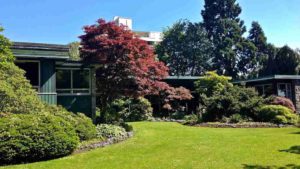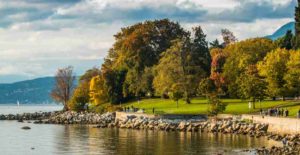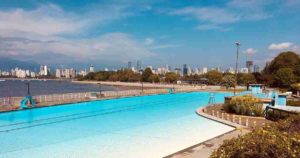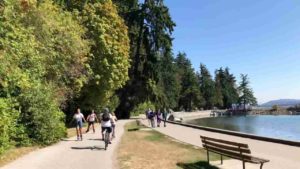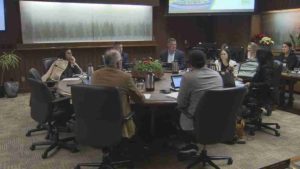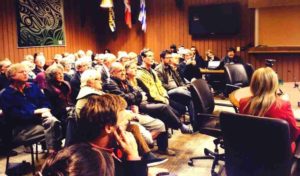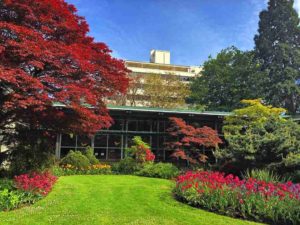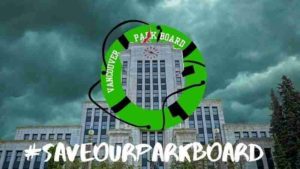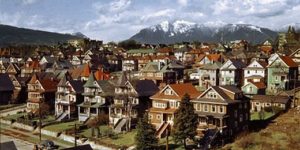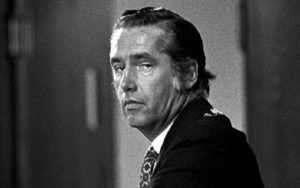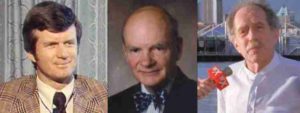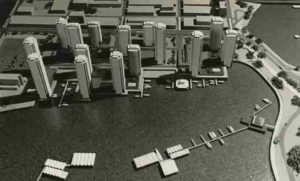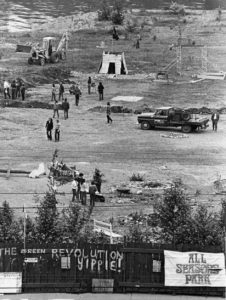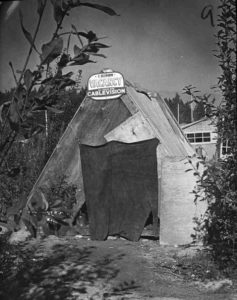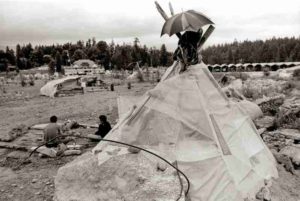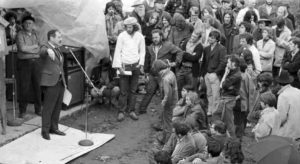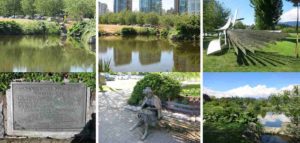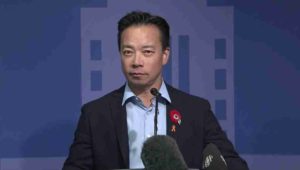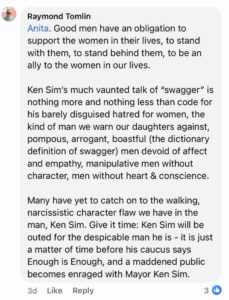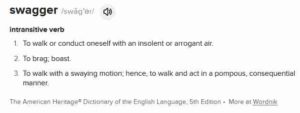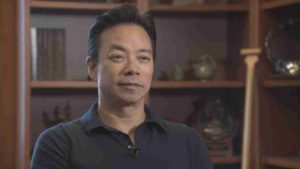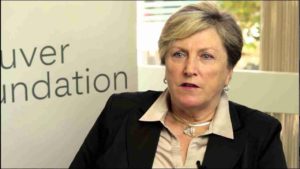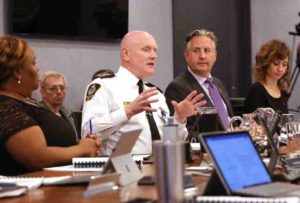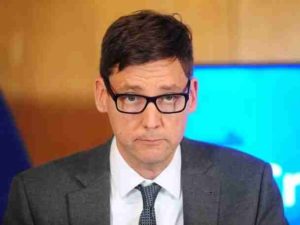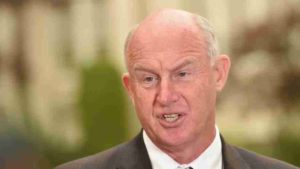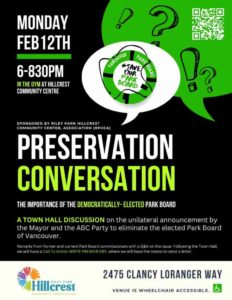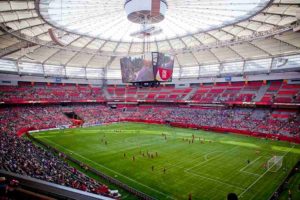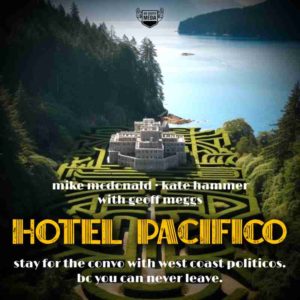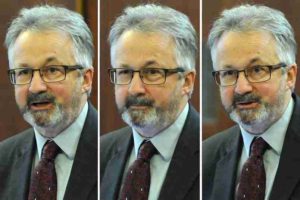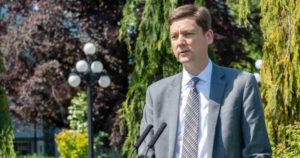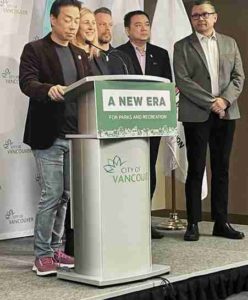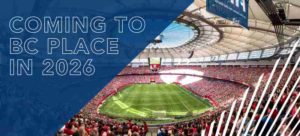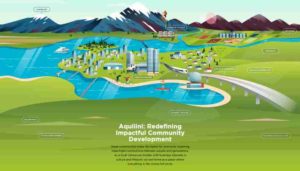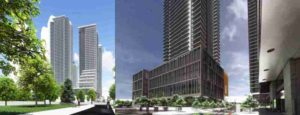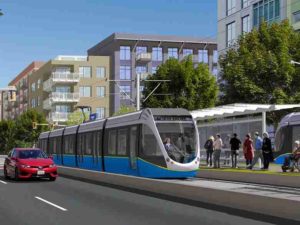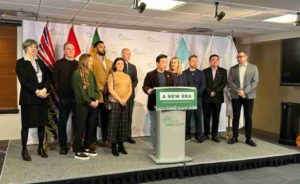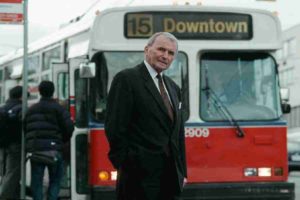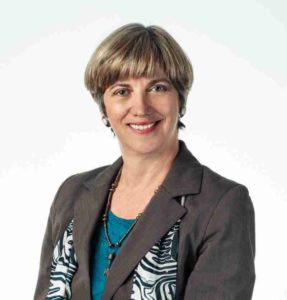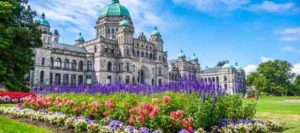
Despair reigns across our land, as the inexorable move towards the dissolution of an independent, elected Park Board proceeds relentlessly, calamitously forward.
In today’s VanRamblings post, we’ll attempt to reason why Mayor Ken Sim and his super majority ABC Vancouver team of City Councillors arrived at the decision to eliminate the 133-year-old Vancouver Park Board, the role the administration of the David Eby government will play, why the provincial government supports the seemingly arbitrary initiative of the Mayor, and why we believe that it is inevitable that in months, Vancouver’s beloved, elected Park Board will fade into history.

On an episode of the Air Quotes Media podcast, Hotel Pacifico, that aired just before Christmas, former Vancouver City Councillor / Chief of Staff to Premier John Horgan , Geoff Meggs, posited that the move to abolish the Vancouver Park Board was part of a dastardly plot by B.C. United Party leader Kevin Falcon.
Apparently, Mr. Falcon had convinced the Mayor and his ABC Vancouver Councillors — all of whom are members and supporters of B.C. United — that a move to eliminate the elected Park Board would create discord within David Eby’s New Democratic Party caucus, heading into this year’s October 19th provincial election.


Vancouver’s 9 duly-elected New Democrat Party Members of the Legislature in Victoria
Given the likelihood many in the NDP caucus would be opposed to the Mayor’s initiative to have the provincial government amend the Vancouver Charter to allow the dissolution of an elected Park Board — a move that could jeopardize the re-election chances of many of the New Democratic Party government’s Vancouver-based members of the legislature — working hand in hand, Kevin Falcon and Ken Sim devised a plan to turn the tables on the re-election chances of Vancouver’s NDP MLA’s, which very much includes Premier David Eby himself, who is in his 11th year as the elected representative in the riding of Vancouver Point Grey.

Geoff Meggs, Vancouver City Councillor 2008 – 2017 | Chief of Staff to Premier John Horgan, 2017 – 2022
Alas. As much as VanRamblings enjoys a good conspiracy theory, in point of fact, privately, Mr. Meggs was telling his intimates that he had proposed the Kevin Falcon “theory” arising from his concern that, given the polling that has the NDP riding high in the polls and seemingly undefeatable, he is concerned that NDP supporters very well may not volunteer at their MLA’s campaign offices once the writ is dropped this upcoming September, and further that New Democratic Party voters will stay home, and not vote at the advance polls or cast a ballot on election day.

Every vote counts. New Democratic Party supporters will have to work as hard as ever in the lead up to, and during the course of British Columbia’s 43rd provincial election, if we wish to ensure the re-election of the David Eby NDP government.

Mayor Ken Sim announces Park Board transition working group
The story of the decision of the Ken Sim-led majority ABC Vancouver administration to eliminate Vancouver’s independent, elected Park Board goes back to March of last year, when Premier David Eby made a proposal to Vancouver’s Mayor to move B.C. Place from its current home adjacent to Rogers Arena to Hastings Park.

While it is true that David Eby has stated that it is probable his government will spend between $300 and $400 million dollars on a renovation of B.C. Place to meet the requirements of the bodies bringing the Invictus Games to British Columbia in 2025, and the FIFA World Cup to Vancouver in 2026, in fact reliable sources have told VanRamblings that the long term plans for B.C. Place involves moving the aging stadium to Hastings Park, over which the City of Vancouver has jurisdiction.
As you might well expect, development and growth — and an expansion of our transit system — is at the heart of the decision by the Premier.
In addition, in eliminating the independent, elected Park Board, ABC Vancouver’s financial backers’ fondest wishes will be realized, as whole tracts of previous park / open green space will be available for development, to build, build, build …

And, of course, the mega-developer Aquilini family is very much involved, as well.

Here’s the plan: a David Eby government would work closely with the members of Vancouver City Council, and the Aquilini development corporation, to redevelop the B.C. Place site where, conceivably, the 7 hectare / 17-acre site would become home to three or more 70-to-95 storey towers in a newly designated “downtown village”, providing more than 3,000 residential condominium units in what will soon become, as planned, the heart of the downtown core of Vancouver.
The monies derived from the sale of the 3,000 luxury condominium units — in which the government would co-develop the B.C. Place site with the Aqualini family, where the completed condominium units would sell for up to $125 million on the top floors, many of the condominium units sold offshore, with the provincial government realizing billions of dollars in profit — would not only pay for the construction of a new stadium on the race track grounds at Hastings Park — a covenant prevents the construction of housing at Hastings Park, but not a sports facility — but for a new light rail system, as well, from Vancouver’s city core, along Hastings, down Renfrew to McGill / Hastings Park, and over to the North Shore.

ABC Vancouver Mayoral candidate Ken Sim pledged support for a North Shore rapid transit line less than two weeks before the 2022 Vancouver civic election.
Late last year, on October 4, 2023, Vancouver City Council endorsed making a formal request to TransLink’s Mayors’ Council to perform a rapid transit study of Hastings Street between downtown Vancouver and Hastings Park /PNE. Following up on his pre-election pledge to support rapid transit to the North Shore, newly-elected Mayor Ken Sim met with North Shore Mayors last February to re-state and reinforce the pledge he had made during his 2022 campaign to support a long-sought-after rapid transit line to the North Shore.

Park Board transition working group: Catherine Evans, Gregor Young, Jordan Nijjar, Shauna Wilton, Jennifer Wood
The person on the left in the photo above is Catherine Evans, former Library Board Chair, Vision Vancouver Park Board Commissioner, most recently the senior constituency assistant in federal MP Joyce Murray’s Vancouver Quadra office, and although Ms. Evans is a card carrying member of the federal Liberal Party, provincially she is a staunch supporter of David Eby, and his NDP administration in Victoria.
In the past, Catherine Evans has worked on David’s Eby’s campaigns for office and, in fact, on E-Day, while working in Mr. Eby’s campaign office, has been VanRamblings’ no nonsense Get Out The Vote “boss”.
A story — a digression and and an aside — to help explain why Catherine Evans has joined Mayor Ken Sim’s Park Board Transition Working Group.

George Puil, 14 years as a Park Board Commissioner, then for 26 years, a Vancouver City Councillor
In 2001, B.C. Liberal leader Gordon Campbell won an overwhelming victory at the polls, securing 77 of 79 seats in the Legislature, leaving the NDP with two seats: Joy McPhail in Vancouver Hastings, and Jenny Kwan in Vancouver Mount Pleasant.
As is always the case with a change of government, there are 5,000 or more positions to be filled by the winning party’s supporters, with positions on college and university boards, regulatory authorities, as well as Crown agencies and commissions, and much more. Having retired from his job as an educator at Kitsilano Secondary School, and after 40 years in elected office, Mr. Puil — a man of experience, and a mentor to Gordon Campbell — following his ignominious defeat at the polls in the 2002 Vancouver municipal election, found himself at loose ends.
Within six months of taking office, Premier Gordon Campbell appointed his good friend George Puil to three regulatory bodies in his government, not requiring too much from Mr. Puil in respect of time, certainly much less time than had long been the case when Mr. Puil sat as a Vancouver City Councillor. Annual compensation for these “out of the public eye” regulatory bodies came in at $250,000, a pretty penny that came in addition to Mr. Puil’s healthy teachers’ pension.
 Catherine Evans, one of the loveliest persons of VanRamblings’ acquaintance
Catherine Evans, one of the loveliest persons of VanRamblings’ acquaintance
As Ms. Evans lives in VanRamblings neighbourhood, we run across one another frequently, and chat volubly and at length about the state of the world, and more often than not federal politics (as it happens, VanRamblings is a Justin Trudeau fan).
If you know David Eby, you know that he likes to have “his people” in place — thus, Ms. Evans’ placement on Mayor Sim’s Park Board transition working group. David Eby wants a close eye kept on the machinations of that contentious Park Board working group.
In our various conversations, Ms. Evans has made it clear — arising from a tragic personal circumstance — that she wants out of politics, has no interest in seeking political office, and would find solace and peace travelling with her husband to various locales across the globe, far away from the political maelstrom.
Why has Catherine Evans joined Mayor Ken Sim’s Park Board transition working group? Quite simply, because her good friend David Eby asked her to.
To know Catherine Evans — who is exceptionally bright, one of the strongest, most principled and hardest working women we know — is to know that her role as a low key change maker for the better is how she brings herself to the world.
Enter David Eby, who should he be re-elected to government in October, will set as a priority the appointment of his confidante Catherine Evans to the provincial bodies of her choice, where she can make a difference, out of the public eye, compensated fairly for her contribution, and for her many many gifts.

The word VanRamblings is hearing out of Victoria is that David Eby will not move forward this spring on the request of ABC Vancouver to amend the Vancouver Charter, to eliminate an independent, elected Vancouver Park Board.
Which means that those of us who love the Vancouver Park Board, live Park Board deep in our soul, and cherish Park Board, although we have our work cut out for us this next year, we may have an outside chance of moving the David Eby government away from making the fatal decision to dissolve the Vancouver Park Board.
